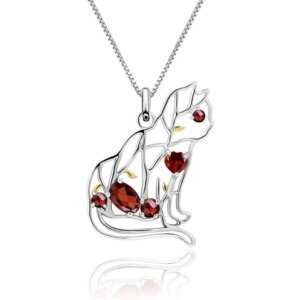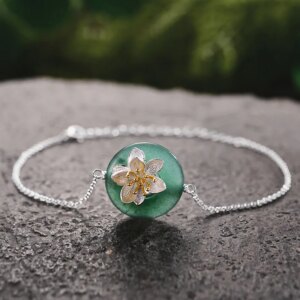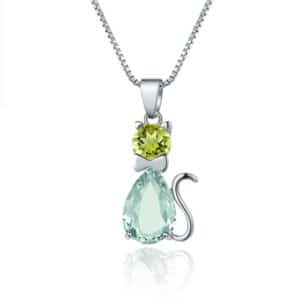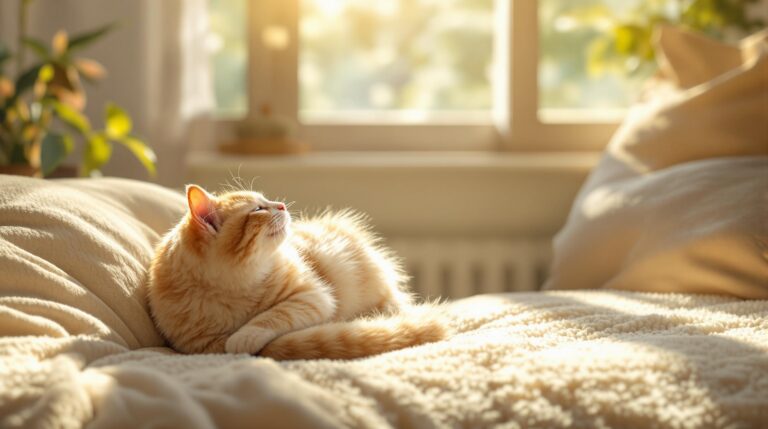Cats Dry Skin, at Cat Karma Creations, we understand that cats’ dry skin can be a frustrating and uncomfortable issue for both cats and their owners. This article will explore the common causes of cat dry skin, effective treatments, and preventive measures. By the end, you’ll have a comprehensive understanding of how to keep your cat’s skin healthy and hydrated. Discover the best products and natural remedies to alleviate dry skin and ensure your feline friend is comfortable and happy.
Common Causes of Cats Dry Skin
Cats Dry Skin Environmental Factors
One of the primary causes of cats’ dry skin is environmental factors. Dry air, especially during the winter months, can strip moisture from your cat’s skin, leading to dryness and flakiness. Indoor heating systems can exacerbate this issue, creating a dry and uncomfortable environment for your pet. Additionally, exposure to harsh weather conditions, such as cold winds or excessive sunlight, can also contribute to dry skin in cats.
Dietary Issues
A poor diet can significantly affect your Cats Dry Skin health. Cats require a balanced diet rich in essential fatty acids, vitamins, and minerals to maintain healthy skin. A diet lacking in these nutrients can lead to dry, flaky skin. Feeding your cat a high-quality, balanced diet can help improve their skin condition and overall health. Consider incorporating foods rich in omega-3 fatty acids, such as salmon or flaxseed, into their diet to promote healthy skin.
Health Conditions
Several health conditions can cause or exacerbate Cats Dry Skin. These include hormonal imbalances, thyroid disorders, and kidney disease. Hormonal imbalances, such as hyperthyroidism, can affect the skin’s ability to retain moisture, leading to dryness and irritation. Thyroid disorders can also disrupt the skin’s natural oil production, causing dry skin. Kidney disease can result in dehydration, which can manifest as dry, flaky skin. If you suspect your cat has a health condition, it’s essential to consult a veterinarian for a proper diagnosis and treatment plan.
Allergies
Allergies are another common cause of cats’ dry skin. Cats can be allergic to various substances, including environmental allergens, food ingredients, and flea bites. Environmental allergens, such as pollen, dust mites, and mold, can cause allergic reactions that lead to dry, itchy skin. Food allergies, particularly to ingredients like corn, wheat, or soy, can also cause skin issues. Flea bites can trigger an allergic reaction, resulting in severe itching and dry skin. Identifying and managing allergies is crucial for maintaining your cat’s skin health.
Effective Treatments for Cats’ Dry Skin
Shampoos and Conditioners
Using the right shampoo can make a significant difference in treating cats’ dry skin. Look for shampoos specifically formulated for dry or sensitive skin, as these can help soothe and hydrate the skin. Medicated shampoos containing ingredients like oatmeal, aloe vera, or chamomile can provide additional relief. When bathing your cat, use lukewarm water and be gentle to avoid further irritation. Follow up with a conditioner to lock in moisture and maintain a healthy coat.
Topical Oils and Lotions
Topical oils and lotions can be highly effective in treating cats’ dry skin. Essential oils like coconut oil, olive oil, and sweet almond oil can be applied topically to moisturize and nourish the skin. These oils are easily absorbed and can provide immediate relief from dryness and itching. Carrier oils, such as jojoba oil or avocado oil, can also be used to dilute essential oils and enhance their effectiveness. Always dilute essential oils before applying them to your cat’s skin to avoid irritation.
Supplements and Vitamins
Supplements and vitamins can play a crucial role in managing cats’ dry skin. Omega-3 fatty acids, found in fish oil supplements, can help reduce inflammation and improve skin health. Vitamin E, an antioxidant, can protect the skin from damage and promote healing. B-complex vitamins, particularly biotin, can support healthy skin and coat. Consult with your veterinarian to determine the appropriate supplements and dosages for your cat. Adding these supplements to your cat’s diet can help alleviate dry skin and promote overall health.
Home Remedies
There are several home remedies you can try to treat cats’ dry skin. One effective method is to give your cat a warm, damp cloth bath. This can help remove loose flakes and soothe the skin. Adding a small amount of olive oil or coconut oil to your cat’s food can also help improve their skin condition. You can also use a humidifier in your home to add moisture to the air, especially during dry winter months. Regular brushing can help distribute natural oils and remove dead skin cells, promoting a healthy coat. These simple home remedies can provide significant relief and improve your cat’s skin health.
Preventing Cats’ Dry Skin
Maintaining a Balanced Diet
A balanced diet is essential for preventing cats’ dry skin. Ensure your cat is getting a high-quality, nutritionally complete diet that includes essential fatty acids, vitamins, and minerals. Consider adding foods rich in omega-3 fatty acids, such as salmon or flaxseed, to their diet. Omega-3 fatty acids can help reduce inflammation and improve skin health. You can also give your cat omega-3 supplements to ensure they are getting enough of these important nutrients. A well-balanced diet can help prevent dry skin and promote overall health.
Regular Grooming
Regular grooming is crucial for maintaining your cat’s skin health. Brushing your cat’s coat regularly can help distribute natural oils and remove dead skin cells, promoting a healthy coat. Use a gentle brush or comb to avoid irritating the skin. Bathing your cat too frequently can strip the skin of its natural oils, so limit baths to once every few months unless otherwise recommended by your veterinarian. Regular grooming can also help you identify any skin issues early, allowing for prompt treatment.
Humidifying the Environment
Maintaining a humid environment can help prevent cats’ dry skin, especially during the dry winter months. Use a humidifier in your home to add moisture to the air, which can help keep your cat’s skin hydrated. Place the humidifier in the room where your cat spends the most time to ensure they benefit from the added moisture. You can also add a bowl of water to a warm room to increase humidity levels. Keeping the air moist can help prevent dry skin and ensure your cat stays comfortable.
Avoiding Irritants
Avoiding irritants is essential for preventing cats’ dry skin. Common irritants include harsh chemicals, fragrances, and certain fabrics. Use gentle, hypoallergenic products for cleaning and grooming your cat. Avoid using scented shampoos, conditioners, or lotions, as these can irritate the skin. Choose soft, breathable fabrics for your cat’s bedding and avoid using rough or synthetic materials. Regularly washing your cat’s bedding in mild detergent can also help prevent skin irritation. By avoiding irritants, you can create a safe and comfortable environment for your cat.
When to Consult a Vet
Persistent Symptoms
If your cat’s dry skin symptoms persist despite your best efforts, it’s time to consult a veterinarian. Persistent dry skin can be a sign of an underlying health issue that requires professional attention. Your vet can perform a thorough examination and recommend appropriate treatments. They may also suggest additional tests to rule out other conditions, such as allergies or hormonal imbalances. Early intervention can help prevent the condition from worsening and ensure your cat’s skin remains healthy.
Severe Irritation
Severe irritation, such as intense itching, redness, or inflammation, can indicate a more serious skin condition. If your cat is showing signs of severe irritation, it’s important to seek veterinary care. Severe irritation can lead to secondary infections, which can be painful and difficult to treat. Your vet can prescribe medications, such as antihistamines or corticosteroids, to alleviate symptoms and provide relief. They can also offer advice on managing your cat’s skin condition and preventing future flare-ups.
Underlying Health Issues
Underlying health issues, such as hormonal imbalances or kidney disease, can cause or exacerbate cats’ dry skin. If you suspect your cat has an underlying health issue, it’s crucial to consult a veterinarian for a proper diagnosis and treatment plan. Your vet can perform blood tests, urinalysis, and other diagnostic tests to identify the underlying cause of your cat’s dry skin. Treating the underlying condition can help improve your cat’s skin health and overall well-being. Regular vet check-ups can also help detect and manage health issues early.
Popular Quote
“A cat has absolute emotional honesty; human beings, for one reason or another, may hide their feelings, but a cat does not.”
— Ernest Hemingway
Statistical Fact
According to the American Veterinary Medical Association (AVMA), approximately 30% of cats suffer from skin issues at some point in their lives. This statistic underscores the importance of proactive care and regular check-ups to maintain your cat’s skin health. Always consult a veterinarian if you notice persistent or severe skin issues in your cat.
Three Tips for Managing Cats’ Dry Skin
- Regular Grooming: Brush your cat’s coat at least once a week to distribute natural oils and remove dead skin cells. This can help prevent dryness and promote a healthy coat.
- Hydrate the Environment: Use a humidifier in your home, especially during dry winter months, to add moisture to the air. This can help keep your cat’s skin hydrated and prevent dryness.
- Omega-3 Supplements: Consider adding omega-3 fatty acid supplements to your cat’s diet. These supplements can help reduce inflammation and improve skin health, making them a valuable addition to your cat’s routine.
Popular Questions
What are the common signs of dry skin in cats?
Common signs of dry skin in cats include flakiness, dandruff, excessive shedding, and itching. Your cat may also have red, irritated patches on their skin. If you notice any of these symptoms, it’s important to address them promptly to prevent further discomfort.
Can a poor diet cause dry skin in cats?
Yes, a poor diet can significantly affect your cat’s skin health. Cats require a balanced diet rich in essential fatty acids, vitamins, and minerals to maintain healthy skin. A diet lacking in these nutrients can lead to dry, flaky skin. Feeding your cat a high-quality, balanced diet can help improve their skin condition and overall health.
How often should I bathe my cat with dry skin?
Bathing your cat too frequently can strip the skin of its natural oils, exacerbating dry skin. Limit baths to once every few months unless otherwise recommended by your veterinarian. Use a gentle, moisturizing shampoo and follow up with a conditioner to lock in moisture and maintain a healthy coat.
Final Thoughts About Cats’ Dry Skin
Managing and preventing cats’ dry skin is essential for their overall health and well-being. By understanding the causes, using effective treatments, and taking preventive measures, you can ensure your cat’s skin remains healthy and hydrated. If symptoms persist, always consult a veterinarian for professional advice. For more information and to explore our range of cat-themed jewelry and gifts, visit Cat Karma Creations. You can also reach out to us via our contact form or give us a call at (800) 343-1604 for any inquiries or custom orders. We are here to help you and your feline friends!
Comparison Table
| Feature | Cat Dry Skin Shampoos | Cat Dry Skin Oils | Cat Dry Skin Supplements |
|---|---|---|---|
| Effectiveness | High | Moderate | High |
| Ease of Use | Moderate | High | High |
| Cost | Moderate | Low | Moderate |
| Ingredients | Natural and medicated options | Essential oils and carrier oils | Omega-3 fatty acids, vitamins |
| Side Effects | May cause dryness if overused | Rare | Generally safe, but consult a vet |
Dot Point List
- Understanding the causes of cats’ dry skin, including environmental factors and dietary issues.
- Choosing the right shampoo for your cat to soothe and hydrate dry skin.
- Incorporating essential oils into your cat’s grooming routine for natural relief.
- Feeding your cat a balanced diet rich in essential fatty acids and vitamins to promote healthy skin.
- Using supplements to support your cat’s skin health, such as omega-3 fatty acids and vitamin E.
- Creating a comfortable and humid environment to prevent dry skin, especially during winter months.
















